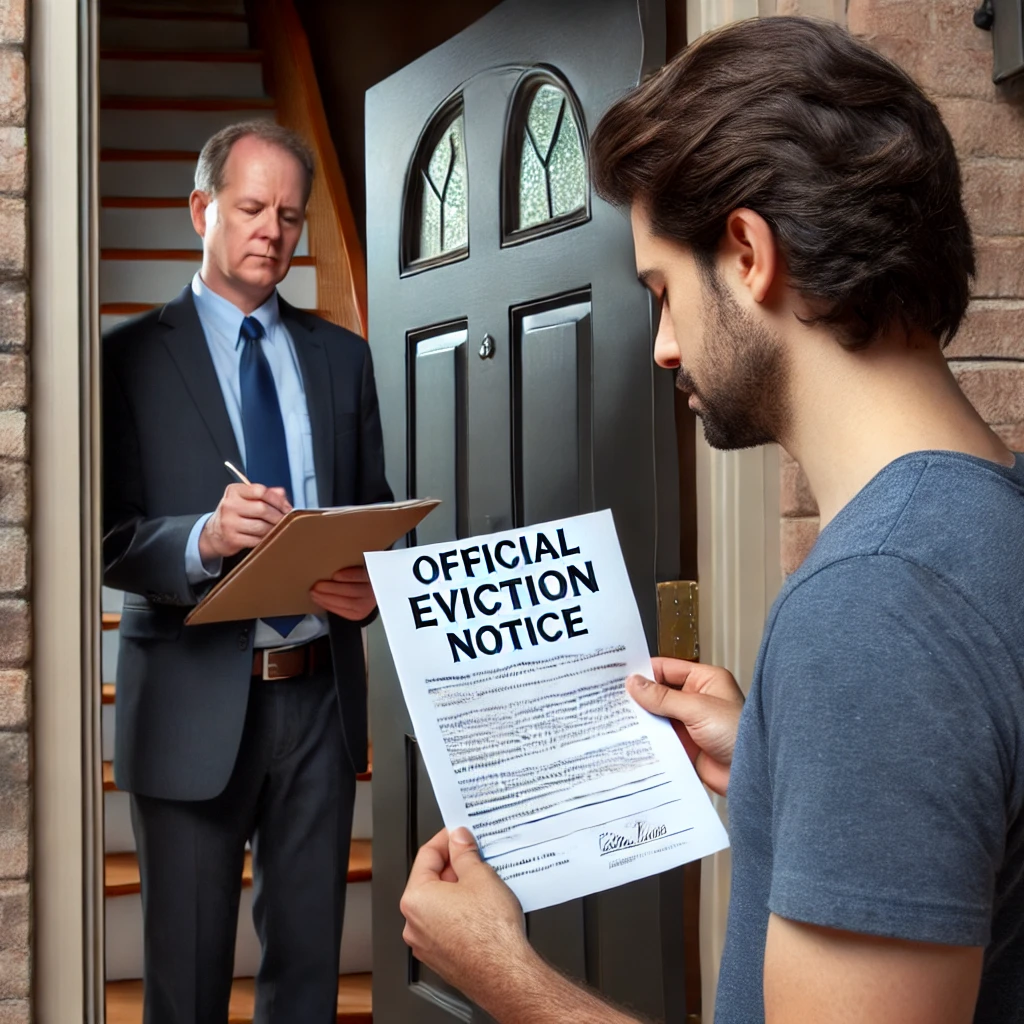Introduction
Evicting a tenant or squatter who is not paying rent can be a challenging and legally complex process for landlords and property managers in Dallas, TX. This blog explains the Dallas law for eviction in simple terms, helping you understand your rights and the steps involved in a legal eviction. Whether you are dealing with a tenant who refuses to pay rent or a squatter occupying your property, knowing the eviction process is crucial for protecting your investment.
.

What is the Dallas Law for Eviction?
The Dallas law for eviction follows the guidelines set by Texas state law for removing tenants or squatters who do not comply with their lease agreements or illegally occupy a property. Landlords must go through a legal process to regain control of their property, including giving proper notice, filing for eviction, and possibly appearing in court.
Types of Eviction Situations
- Non-Payment of Rent: When a tenant fails to pay rent on time.
- Lease Violations: Other than non-payment, like unauthorized pets or property damage.
- Squatters: Individuals who occupy a property without permission or a lease.
Step-by-Step Guide to Legally Evicting a Tenant in Dallas
Step 1 – Serve a Notice to Vacate
The first step in the eviction process is to serve the Notice to Vacate. In Dallas, landlords must provide the tenant with a notice giving them three days to either pay overdue rent or vacate the property, unless a different period is specified in the lease agreement. This notice can be delivered in person, posted on the door, or sent by certified mail.
Step 2 – File an Eviction Lawsuit
If the tenant does not comply with the Notice to Vacate, you must proceed by filing an eviction lawsuit (also known as a forcible detainer suit) with the appropriate Justice of the Peace (JP) court in Dallas County. Filing the lawsuit will set a court date where both parties can present their case.
Step 3 – Attend the Court Hearing
Once the eviction lawsuit is filed, a hearing will be scheduled. As the landlord, it is essential to attend this hearing and provide evidence, such as the lease agreement, proof of non-payment, and records showing that the Notice to Vacate was properly served. The judge will then decide whether to grant the eviction.

Dealing with Squatters Under Dallas Law
Squatters are individuals who occupy your property without permission. Under Dallas law for eviction, squatters must also be served with a Notice to Vacate. If they fail to leave, you can file for an eviction in the local JP court. Squatters do not have the same legal rights as tenants under a lease, but landlords must still follow the eviction process to avoid any legal consequences.
Common Mistakes Landlords Make When Evicting Squatters
- Skipping Proper Notice: Even for squatters, you must provide a formal Notice to Vacate.
- Taking Self-Help Actions: Actions like changing the locks or shutting off utilities are illegal in Dallas and can lead to penalties for landlords.
The Role of the Justice of the Peace Court in Dallas
In Dallas, eviction cases are handled by the Justice of the Peace (JP) courts. There are multiple precincts, and the lawsuit must be filed in the precinct where the rental property is located. Here are a few important locations:
- JP 1-1: 8301 S Polk St #220, Dallas, TX 75232
- JP 2-1: 140 N Garland Ave, Garland, TX 75040
- JP 3-1: 1411 W Belt Line Rd, Richardson, TX 75080
It’s essential to file in the correct JP court to avoid any delays in the eviction process.
After the Court Hearing – Writ of Possession
If the judge rules in your favor, they will issue a judgment for possession. If the tenant or squatter does not leave voluntarily within the time specified by the court, you can request a Writ of Possession. This writ allows law enforcement to remove the tenant and their belongings from your property legally.
How Long Does It Take to Get a Writ of Possession in Dallas?
Typically, it takes 24 to 48 hours after the court’s judgment for a Writ of Possession to be issued. The constable or sheriff will then schedule a date to enforce the writ and ensure that the property is returned to you.
FAQs About Dallas Eviction Law
How Much Notice Do I Need to Give a Tenant for Non-Payment?
In Dallas, landlords must provide at least three days’ notice before filing an eviction lawsuit, unless stated otherwise in the lease.
Can I Evict a Tenant Without Going to Court?
No. Under Dallas law, all evictions must be handled through the court system to ensure that the tenant’s rights are respected.
What Are the Costs Involved in the Eviction Process?
Costs include filing fees for the eviction lawsuit, potential legal fees, and costs associated with obtaining a Writ of Possession.
Conclusion – Navigating the Dallas Law for Eviction
Evicting a tenant or squatter in Dallas, TX, requires careful adherence to the legal process. By understanding the Dallas law for eviction, you can protect your property and avoid costly legal mistakes. Whether dealing with non-payment or unauthorized occupancy, following the steps outlined above will ensure you handle the eviction process legally and effectively.
Need more help? Have more questions? Contact us today for a free consultation
